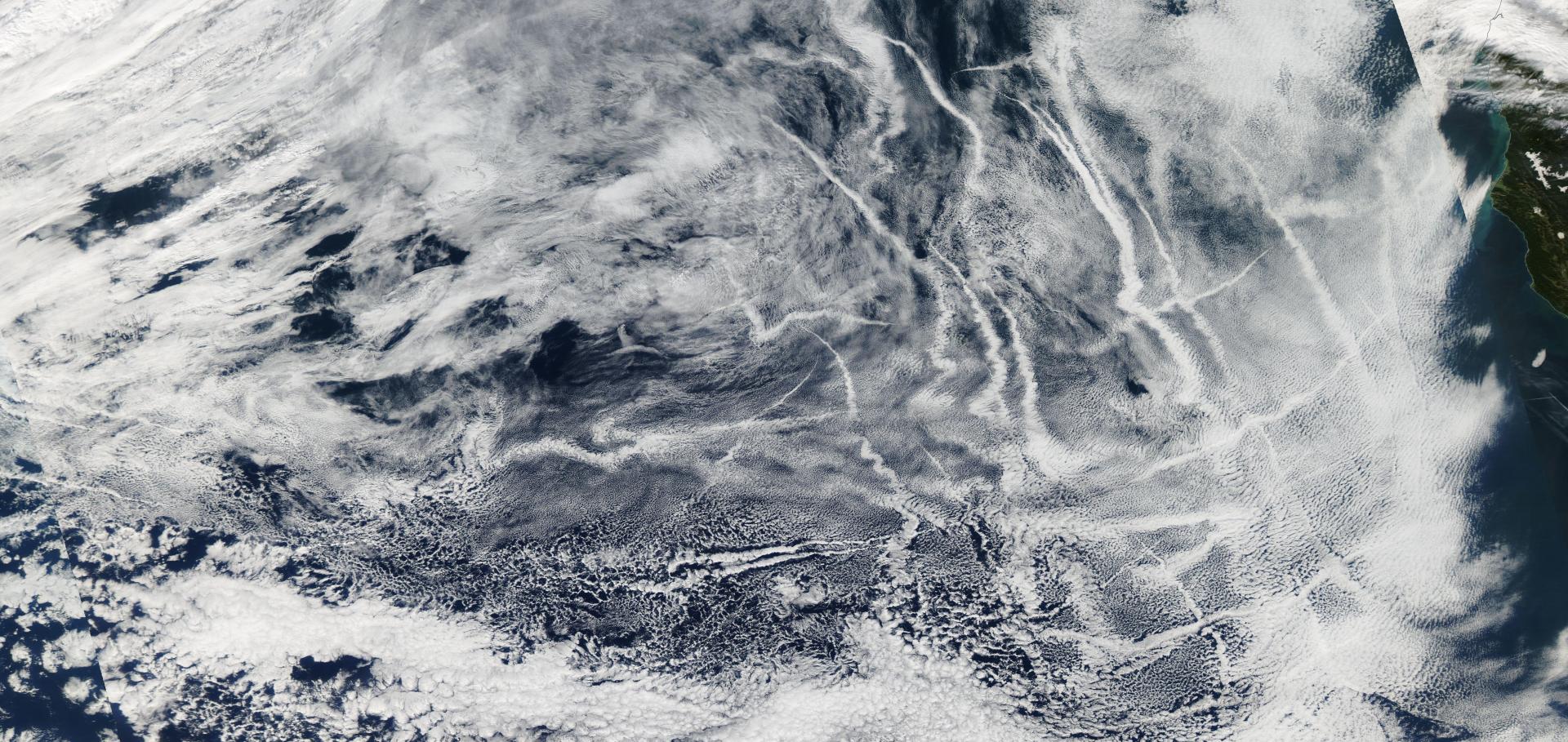I am a DPhil student on the iMIRACLI programme working on aerosol-cloud interactions. I study the relationship between aerosols and cloud properties both with traditional methods like shiptracks and with novel methods. These methods come from the fields of machine learning and causal inference. An understanding of causality is very important in this topic, because we rely on 'passive' observations rather than active experiments or interventions. Because of this, observed correlations of aerosols and cloud properties are not necessarily causal. One confounding factor, which acts on both, is humidity. In my project, I try to untangle the complex network of aerosols, cloud properties, and environmental factors.
More specifically, my project focuses on so-called opportunistic experiments, where a pollution point source allows us to compare polluted and unpolluted clouds. A striking example of these opportunistic experiments are ship tracks, which look like contrails from airplanes, but are caused by ship pollution particles growing clouds (rather than the additional water like in contrails). In my work, I show how cloud properties are changed by ships even when no track is visible to the eye, and how this is different from the visible case. This has important implications for our understanding of clouds, as well as climate change.


